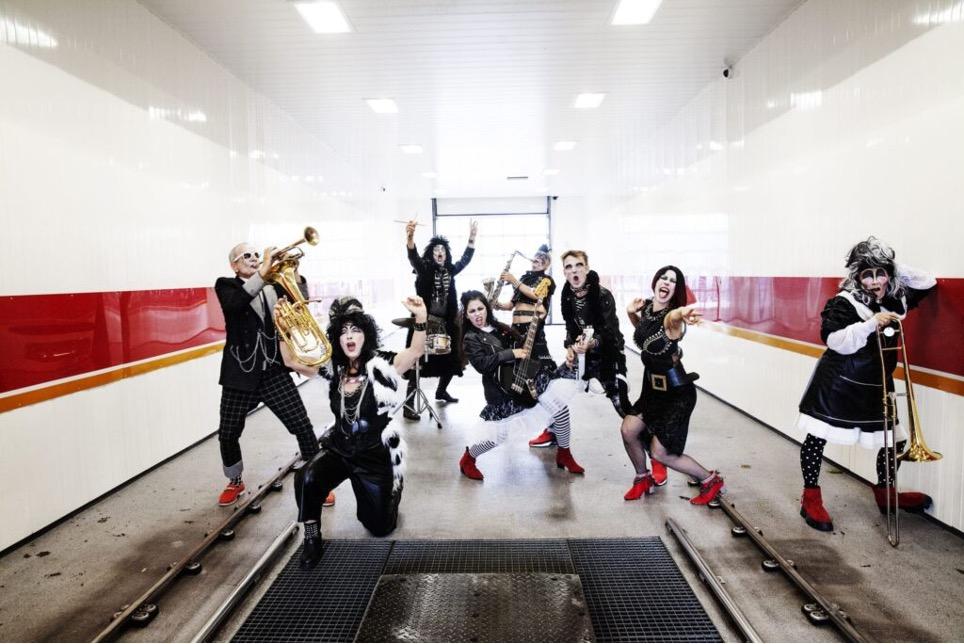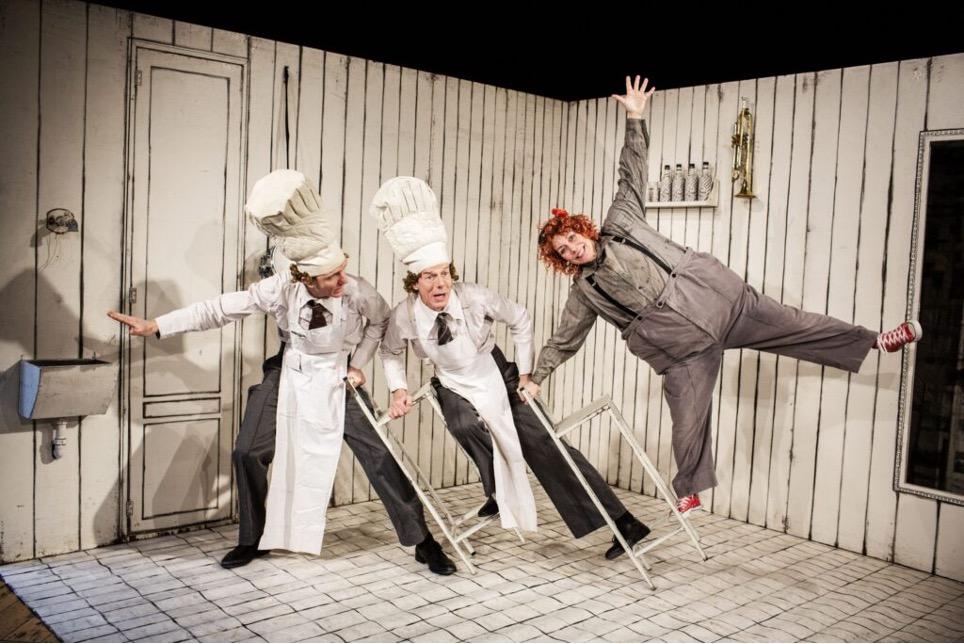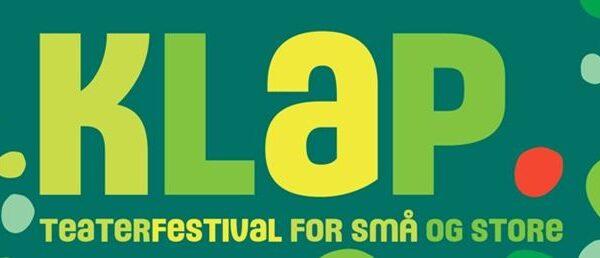Søren Valente Ovesen passed away on July 8
The former editor of Teateravisen, Carsten Jensen, shares a tribute to one of the most prominent figures in Danish children’s theatre.
Søren Valente Ovesen, director, playwright, and actor with the theatre group Batida, has passed away. He was 74 years old and died on July 8—just three days after being admitted to the hospital following a sudden resurgence of cancer.
With his passing, Danish children’s theatre has lost one of its most defining figures – someone who carried its history and left a lasting mark through an impressive artistic and organizational career.
Born on September 19, 1950, Søren Valente Ovesen’s only formal education was a higher preparatory exam (HF). He then worked as a stage manager at Nordisk Film and later became long-term unemployed and a technician for the theatre group Skifteholdet. When the company suddenly found itself in crisis, Søren stepped in and wrote his first play, Hekseskræk (Witch Scare), which became a big success for Skifteholdet during 1983–84.
But things became serious with the founding of Teatergruppen Batida in 1985, where Søren and four of his schoolmates—Sus Hauch, Karen Rasmussen, Tine Sørensen (Søren’s wife), and Simon Holm—came together to create a theatre based on the ideas of their legendary teacher and music educator, Bernhard Christensen. His belief in an inseparable connection between drama, text, dance, and music contrasted with the European tendency to separate these elements, often rendering them elitist rather than accessible.
 The Tempest at Kronborg, Teatergruppen Batida. Photo: Ditte Valente.
The Tempest at Kronborg, Teatergruppen Batida. Photo: Ditte Valente.
From the First to the Last
Søren’s first production with Batida was Sita’s Secret, and with his unexpected passing, his final dramatic work became Stormen på Kronborg (The Tempest at Kronborg), which theatre critic Anne Middelboe Christensen awarded six stars in her review on ISCENE, calling it one of the company’s most successful performances:
“Søren Ovesen has forged the Hamlet story together with a Trump caricature. His riveting script keeps overwhelming with its many delightful inventions in an improbable yet superbly composed plot—one that imaginatively outshines any traditional political analysis of the planet’s imbalance. Reassuring for the children—and almost for the adults too.”
Despite Batida’s declared collective leadership, Søren Ovesen left his unmistakable imprint on the company by writing and directing around 30 of its key productions—and performing in about a third of them. Batida specializes in exploring and developing the fusion of theatre and music, producing and presenting new Danish drama. Søren’s strong political convictions shine through every production—as do his musical talents. But humor and whimsical moments were never spared, ensuring audiences of all ages left enriched.
The International Legacy
International activity has been a defining part of both Batida’s and Søren Ovesen’s work for nearly all of the theatre’s 40 years. The company is known for touring the world—particularly drawn to challenging regions. They’ve visited Cuba multiple times, as well as Iran, Lebanon, Afghanistan, Mongolia, and North Korea.
This has been a deliberate signature strategy focused on solidarity and cultural exchange—even in countries with limited democracy and human rights.
Batida has performed in about 45 countries, totaling over 100 tours, often including workshops and collaboration projects. Søren was the tireless organizer and problem-solver behind many of these efforts, leading co-productions and creating original plays specifically for local theatres—many of which were later invited to perform in Denmark.
While most of his work was for Batida, Søren also wrote directly for international companies. For example, The Elephant was produced in Turkey, Estonia, and Cuba. The latter also received his play The Virgin Who Learned to Count. Though these plays never appeared in Batida’s repertoire, the company has shared several of its own works internationally, including Spaghetti and Osvald the Monkey.
 To Hell with Paradise by the theatre group Batida. Photo: Ditte Valente.
To Hell with Paradise by the theatre group Batida. Photo: Ditte Valente.
A Changing of Generations
When news of Søren’s death spread abroad, Facebook quickly filled with words of mourning, group photos, and fond memories from theatre people around the world—especially from Cuba, Turkey, India, and Brazil. All expressed gratitude for his commitment and generosity.
His international impact was also visible through decades of involvement with the board of ASSITEJ Denmark. He even served a term on the Executive Committee of International ASSITEJ—the global network for performing arts for young audiences. His son, Louis Valente, has been Secretary General of ASSITEJ International since 2017 and is married to Batida’s Cuban-born actress Danay Anaya Blanco.
Now, Batida’s resident playwright and multitalented figure is gone. But Sus Hauch shares that the company has long been preparing a generational transition to ensure Batida continues with the same “ideology” and commitment once the remaining four founders—now all well into their 70s—step back.
 Spaghetti, Teatergruppen Batida. Press photo.
Spaghetti, Teatergruppen Batida. Press photo.
A Loss to the Children’s Theatre Community
Søren’s absence will also be deeply felt in the broader children’s theatre field. He was a steadfast organizer and had an exceptional command of language—crafting both sharp and ironic verbal garlands around his many (often very well-placed) opinions on theatre life and production conditions.
His critiques targeted everyone: the government, cultural policy, the Danish Arts Foundation, Teatercentrum, professional organizations—and theatre colleagues.
He spoke out about unviable production support systems for touring children’s theatres, the selection processes of various reimbursement committees and festivals, and even theatre reviews in Teateravisen.
Søren’s passionate declarations could be provocative, but no one could doubt his burning commitment to the well-being of children’s theatre. Most recently, he expressed his indignation in both concrete action and biting commentary about Teatercentrum’s closure of Teateravisen and its lack of communication about strategies for preserving and developing the large annual theatre festivals, now known as KLAP.
Søren Ovesen’s deep commitment will be sorely missed in Danish children’s theatre—and this writer will greatly miss the occasional exchanges of opinion, laced with his humor and knowledge. Fortunately, his life and many artistic productions have left a lasting legacy. As noted on Batida’s Facebook page, he even left behind a final witty motto when he felt the illness taking hold:
“Even the greatest optimist dies in the end.”
A sad truth—but may his memory be honored.
Details of Søren Ovesen’s funeral will be posted on Batida’s website.
The text is from ISCENE





